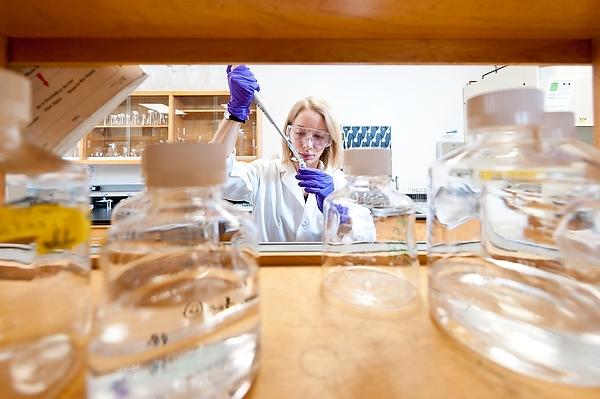Despite bipartisan opposition, a Wisconsin state Assembly committee passed a bill banning research use of aborted fetal tissue Wednesday.
While the bill originally outlawed the use of all aborted fetal tissue, an amendment added last Friday protects research using fetal tissue from abortions conducted before Jan. 1, 2015. The bill would make Wisconsin researchers using banned fetal tissue subject to criminal prosecution. Now that the assembly committee passed the bill, it will go to the Assembly for discussion.
Marsha Mailick, vice chancellor for Research and Graduate Education at University of Wisconsin, strongly opposes the bill because she said in a statement it will end research with life-saving potential in Wisconsin.
“Stopping the clock by limiting research to cell lines developed prior to 2015 effectively tells many patients and their families still waiting for a cure that they are out of luck” Mailick said. “It makes no sense to foreclose the possibility of finding future treatments or cures by creating an artificial end date for advancing certain areas of scientific research.”
According to a statement released by Rep. Andre Jacque, R-De Pere, and Rep. Joel Kleefisch, R-Oconomowoc, the bill with the added amendment will ensure research continues, but not at the expense of preserving human dignity.
Kleefisch said instead of focusing on the loss of aborted fetal tissue as a research tool, researchers should use more ethical replacements.
“We listened to hours of testimony in committee,” Kleefisch said. “While some advocated for more abortions in the name of research, others proved that fetal body parts are not needed for research and there are many good ethical alternatives.”
Mailick said the bill endangers scientific progress in Wisconsin which could yield cures to many diseases. She referenced the dissent of Rep. John Spiros, R-Marshfield, and Rep. Todd Novak, R-Dodgeville, in the Assembly Committee meeting as a sign the bill is not right for Wisconsin.
“The proposal advanced out of committee today threatens this progress and sends a chilling message to our scientists, to the biotechnology industry and to our fellow citizens,” Mailick said. “It does nothing to reduce abortions. The significant bipartisan opposition and closing arguments signal that legislators on both sides of the aisle have grave concerns.”














